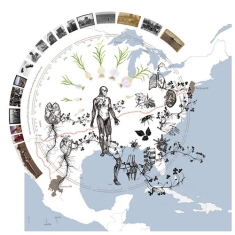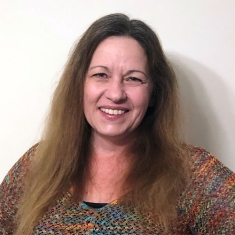NTT Professional/Career Development Funding
The Rutgers School of Environmental and Biological Sciences (SEBS) provides financial support to SEBS non-tenure track (NTT) faculty members who apply to engage in professional development or career advancement activities.
The main criterion for this grant is the demonstration of a clearly defined link to professional/career goals and how the proposed activity will support those goals.
It is the intention of this funding opportunity to support and enhance teaching, defined in its broadest sense. Whether an NTT faculty title is teaching or research, this funding opportunity recognizes that proficiency in teaching is a central aspect of professional/career development.
Eligibility Requirements
- Applicants must be full-time, non-tenure track faculty members at SEBS (instructor and higher, both teaching, professional practice are eligible).
- Applicants must submit a clear rationale as to how the funds will advance their professional development.
- Applications from individuals involved in teaching undergraduate/graduate courses will be given priority.
- Applicants are eligible to apply once per calendar year.
Post-award Requirements for Reimbursement
- All requests must be pre-approved; requests for reimbursement will not be accepted.
- Faculty will be asked to provide a short, post-activity report detailing their activities, which may be shared on this webpage.
Examples of professional development activities include, but are not limited to:
- Conference-related expenses (i.e., registration fees, accommodations, and travel)
- Registration fees for professional development workshops or career networking opportunities
- Other activities will be evaluated on a case-by-case basis
As the grant draws on a limited pool of funds, availability of funds cannot be guaranteed. If the cost of the activity exceeds the amount approved, the individual is responsible for the balance.
How to Apply
Please complete the application form in its entirety, ensuring that all requested information, including quotes, is provided. Additionally, include a detailed breakdown of the costs associated with your request.
After submitting the request, kindly notify Nrupali Patel via email at npatel@sebs.rutgers.edu to confirm your submission. Applicants will be notified of their application status within 2 weeks.
Applications are due on the following dates:
Fall Applications are due Aug 1 (or at least 6 weeks before travel)
Spring Applications are due Jan. 31 (or at least 6 weeks before travel)
Summer Applications are due April 30 (or at least 6 weeks before travel)
Testimonials
-
Conference: Council of Educators in Landscape Architecture, March 2024

“The funding allowed me to attend the conference where I presented how I am using narrative mapping as both a research method and outcome. The work spans disciplines in landscape architecture and human geography, the former in which I teach and the latter in which I am completing a Ph.D. with a project that examines migrant farm labor in Community Supported Agriculture (CSA). The intent of narrative mapping in this study is to communicate multiple and simultaneous stories of CSA as phenomena, labor as embodied human experience, and the local as active, ongoing site of economy (see map image). As a mode of critical cartography, narrative mapping holds the space for visualization of livelihoods that are on the one hand bound by time and place, and, on the other, refuse to be bounded by either.” The narrative map presented here is used as an analytic for research findings that recover obscured throughlines of migrant farm labor, care, and economy in Community Supported Agriculture.
-
Conference: Harvard Business Publishing – Teaching with Cases, Oct 2024
“The funding allowed me to participate in a series of workshop focused on “Teaching with Cases”. It involves using real-world scenarios or historical examples to engage students in problem-solving and critical thinking. By analyzing a case, students are encouraged to apply theoretical knowledge to practical situations, fostering a deeper understanding of the subject matter. This approach helps learners develop skills like decision-making, analysis, and argumentation, as they evaluate different perspectives and outcomes. It also promotes active participation, as students often debate or discuss possible solutions in groups.”
-

Conference: American Society for Microbiology Conference for Undergraduate Educators (ASMCUE), Nov 2024
“Funding from the NTT Professional Development fund allowed me to attend the American Society for Microbiology Conference for Undergraduate Educators (ASMCUE) in Pittsburgh. I attended talks and poster sessions that highlighted active learning, assessment strategies, and other student-centered pedagogical techniques. In addition, I had the privilege of presenting "Escape the Lab," a gamified version of a molecular identification lab activity. Attending this conference inspired me to try new approaches to teaching and assessment, generated valuable feedback I can use to improve ongoing efforts, and deepened my sense of community with colleagues in related teaching disciplines.”
For More Information
Ines Rauschenbach
inesrau@sebs.rutgers.edu